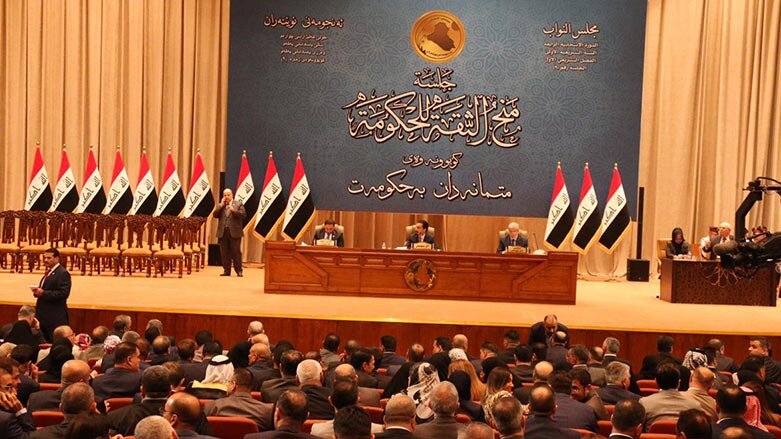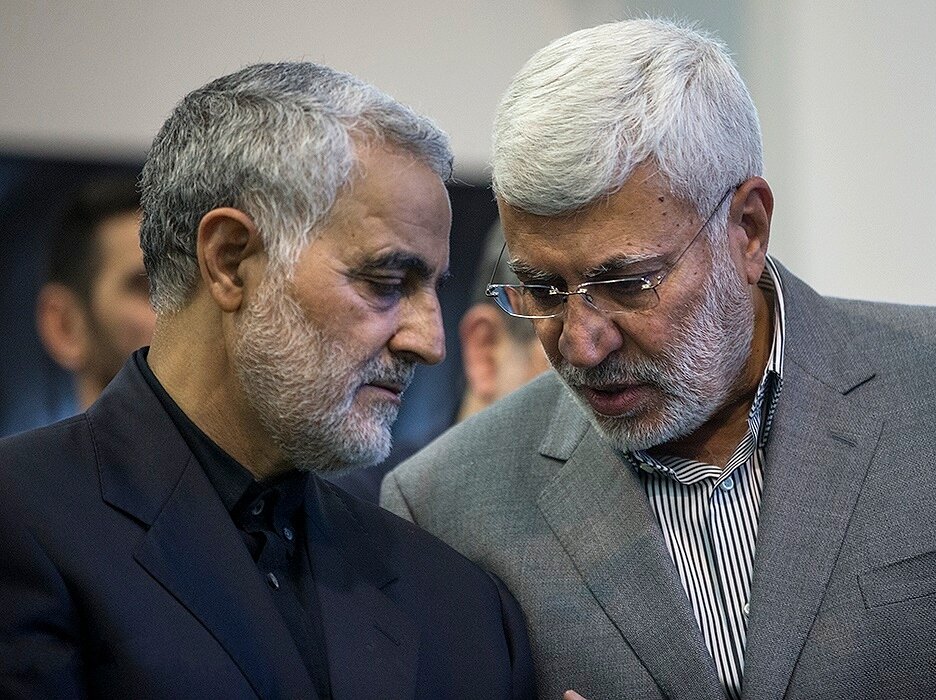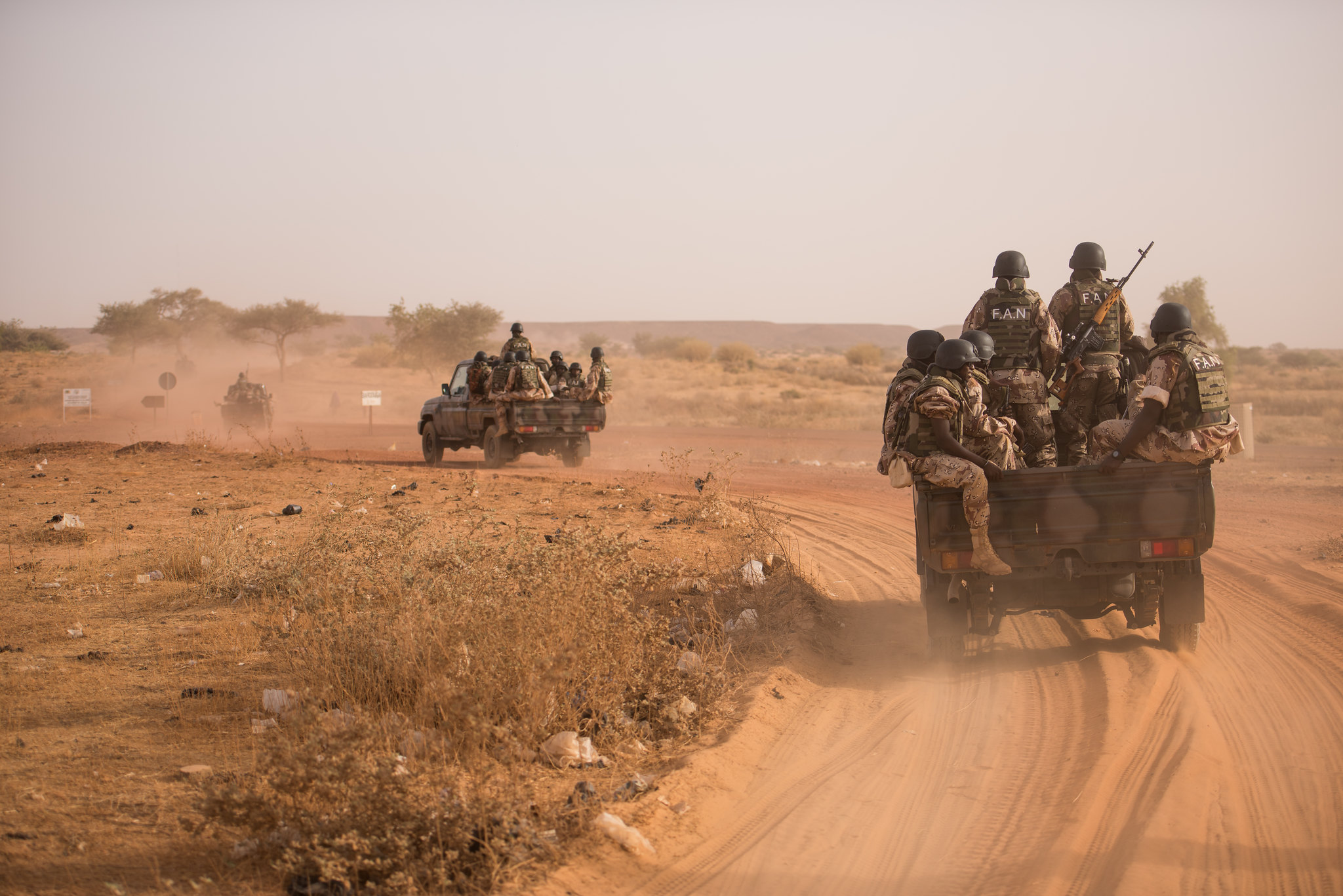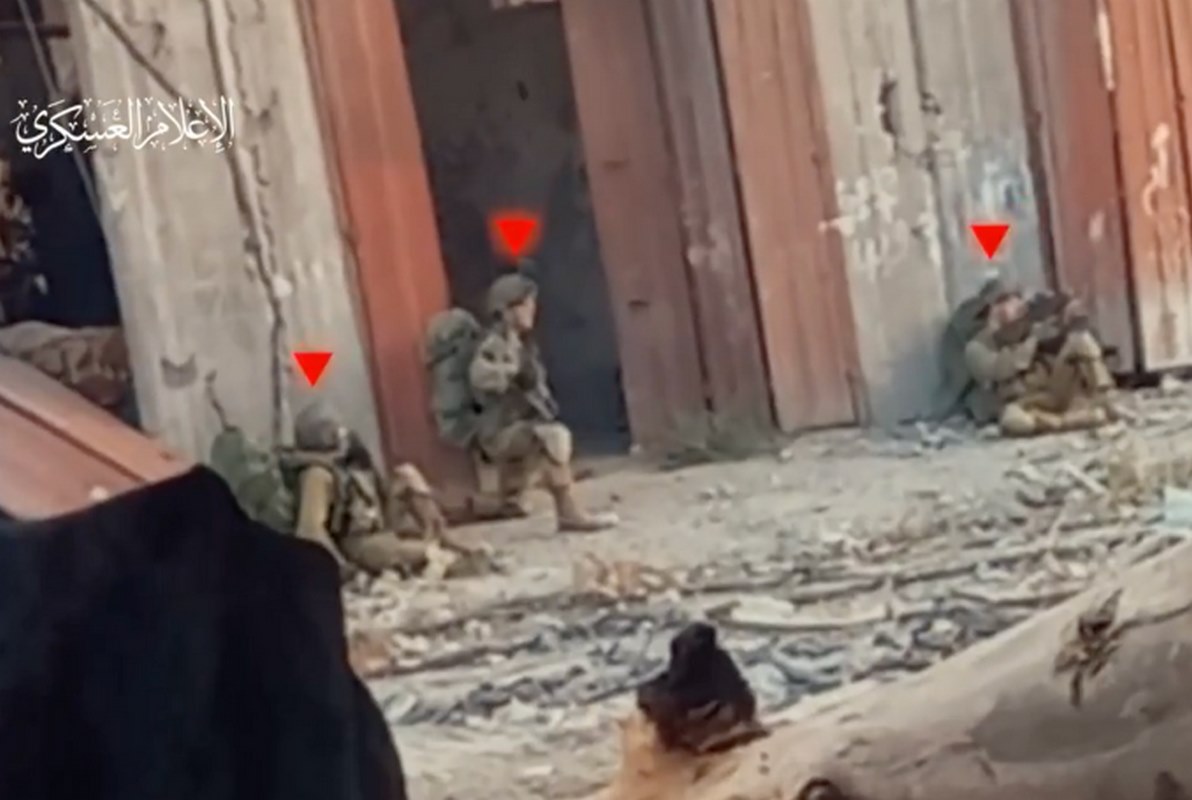PICTURED: Members of Iraq’s Kataeb Hezbollah militia. Photo credit: AFP. Fair Use.
An unofficial ceasefire in Iraq has just been called off between powerful and established Shi’ite militias. Their renewed violence will be leveraged against the remaining 5,000 United States troops in the country.
In a statement on Saturday from a group calling themselves the Iraq Resistance Coordinating Commission (IRCC), the militia leaders slammed the executive branch of the Iraqi government for failing to push for clearer timelines of American military withdrawal, and not enforcing what little was agreed upon in April negotiations on the matter.
“By rejecting to exit its forces [from Iraq], the US administration has sent us a clear message that they only understand the language of force. Therefore, the Iraqi resistance confirms its full readiness to carry out its legitimate, national and legal duty to achieve this goal (force them to withdraw),” the statement read, according to Mideast Eye.
These militias have a long history in the country, and were formally inducted into the Iraqi military following their spearheading of the war on the ground against the Islamic State in 2014-15, hence why they claim “national and legal duty”.
As recently as Monday, the government department assigned to managing the militias, the PMA, said they had “nothing to do with this escalation and will not be a part of it” and bizarrely, that they “would not criticize operations [against US forces] and instead turn a blind eye to them”.
Absent from the front pages of the major American newspapers, the end of this ceasefire captures most of the major failures of the White House’s and Pentagon’s policy in Iraq since their illegal invasion and occupation.
PICTURED: The Iraqi parliament building convening to vote in new cabinet members in October of 2018. Photo credit Kurdistan24.
Are we at war with Iraq again?
The Shi’ite militias which agreed to renew violence on American personnel were principally, Asa’ib Ahl al-Haq, Kataeb Hezbollah, and the Badr Brigade. If these names mean nothing to an American in their 20s or 30s, it’s because the true nature of the conflicts in Iraq has been purposely obscured to hide the tremendous failures of Iraq policy over the last 17 years.
These three militias were among America’s first allies in the country after the 2003 invasion and occupation. Following the 2020 to-a-man resolution from the Iraqi parliament that demanded all American military personnel leave the country, revoking the internationally-recognized requirement for basing forces in a foreign country, it became clear that after more than $2 trillion spent and ten-thousand American war dead, the Pentagon was no closer to controlling or having an fluence in the country than when Saddam Hussein was in power.
As Mid-East experts Scott Horton and Andrew Basevich detail in their books, Saddam Hussein, as a Sunni Muslim, ruled over a predominately Shi’ite population, which having been given the chance by the U.S. invasion and occupation, ethnically-cleansed the capital of Sunnis. The resulting Sunni insurgency which killed thousands of American soldiers, was fought off with the aid of these militias, especially the Badr Brigade, who essentially take their orders from the religious, rather than political authority.
Being that they are Shi’ite, that means Iran, or the two Iraqi political parties that are most aligned with Iran, the Dawa Party, and the Supreme Council for Islamic Revolution in Iraq (SCIRI).
Once the Sunni insurgency ended, the Badr Brigade and others, as well as Dawa and SCIRI, explained to the American military occupiers that they had served their purpose and must now leave at the earliest opportunity, which following Obama’s “redirection” policy towards antagonism against Iran, put the Iraqi Shi’ite bloc at odds with the Pentagon until the rise of the Islamic State, when these Shi’ites were placed under the direct control of the two men Trump assassinated in 2020.
Maj. General Qassim Soleimani and Iraqi Politician Abu al-Muhandis led the ground war against ISIS, the former commanding them in battle, the latter creating an infrastructure within which they could operate after the Iraqi military simply dissolved in the face of the ISIS uprising.
PICTURED: Abu Mahdi al-Muhandis at the funeral of Qasem Soleimani’s father. CC 4.0
A lie or confusion
If soldiers or diplomats in Iraq start dying from rocket attacks, the Pentagon and the White House will have simply no method by which to explain them other than blaming Iran. Iraq is not a country that can act in defense of her own territorial sovereignty, because if she is, than the United States military is an unwelcome occupier, the same as if France tried to invade and recolonize Algeria.
Following the Soleimani assassination, then-prime minister, Adel Abdul Mahdi made a request on Jan 10th, 2020 through the State Department to “send delegates to put in place the tools to carry out the [Iraqi] Parliament’s decision”. Yet his response was that U.S. forces would remain in his country even though his elected officials had ordered them to leave, as keeping forces there was “appropriate”.
Even today, the question of legal authority to stay is simply lied about, as can be read in a recent statement by CENTCOM Commander Gen. Kenneth McKenzie, who said after meeting with the current prime minister that “we have a relatively small U.S. footprint here – all at the invitation of the Government of Iraq”.
However if they were truly at the invitation of Iraq, why in the world would the Iraqi military “not criticize operations [against US forces] and instead turn a blind eye to them,”? Certainly a nation who wanted U.S. troops within its borders would condemn and work to stop its own military forces from attacking the foreigners.
Within some weeks, the very allies of Operation Iraqi Freedom may be killing Americans, while Pentagon officials insist they are wanted there, and the American people are told it’s simply all Iran’s fault.
Continue exploring this topic — Iraq — 17 Years After Operation Iraqi Freedom, Is Iraq Our Enemy Once Again?
Continue exploring this topic — Soleimani — Is Confronting Iran More Important Than Preventing IS Return? Can Trump Have Both?
Continue exploring this topic — Iran — Iran President Tries to Hand Moderates Ammunition for June Election Amid Vienna Nuclear Deal Talks




